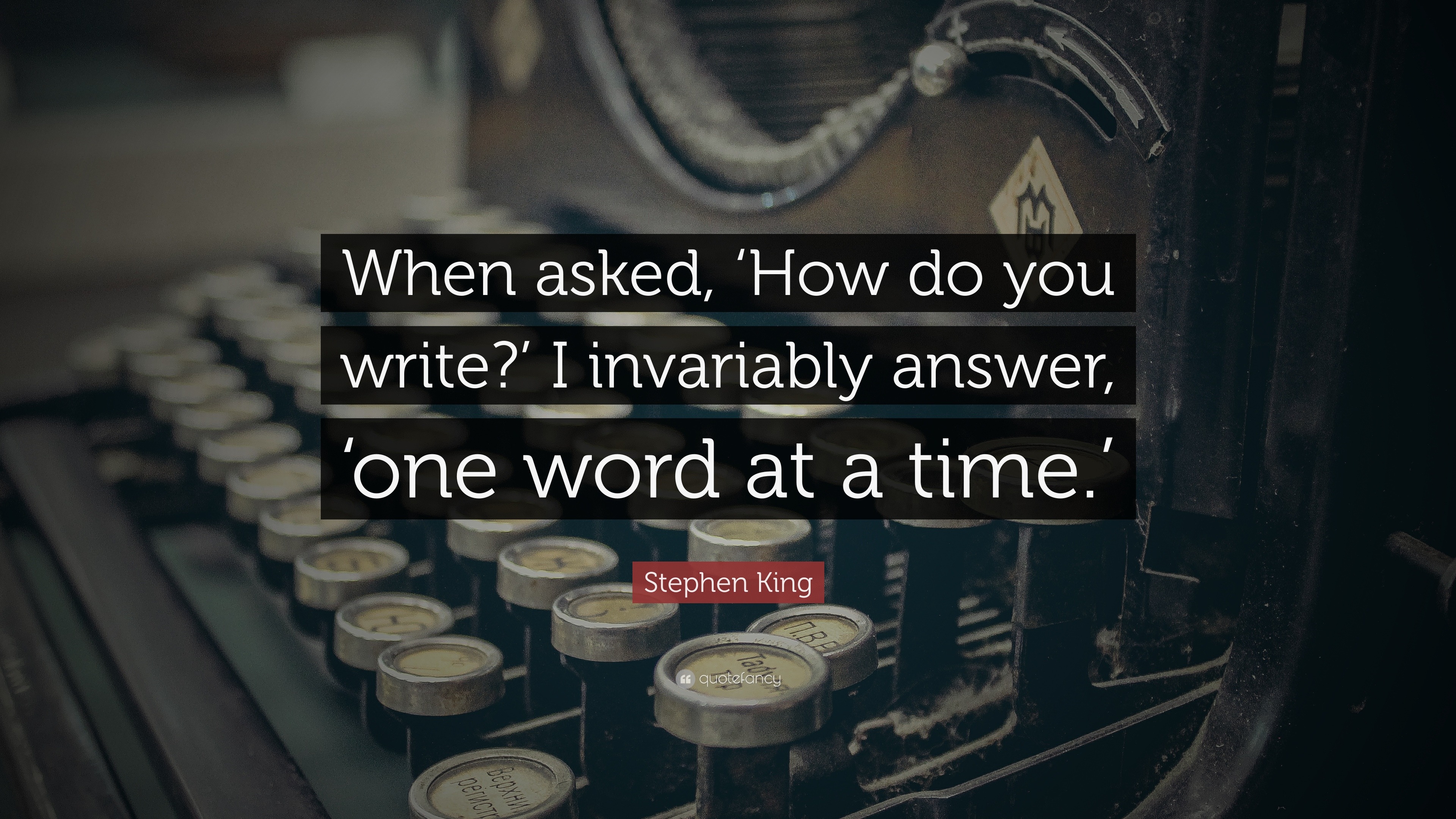Lessons From Stephen King's "On Writing"
 |
| Photo made on canva.com |
Stephen King is one of the most well-known authors of recent times. Even if you don't know his name, but you know his works: Carrie, IT, The Shining, Pet Sematary -- the list goes on, with many of his books adapted to film and television.
Personally, he is one of my biggest writing inspirations, and I want to share some lessons that stuck with me from reading his memoir-slash-guidebook On Writing: A Memoir of the Craft.
(If you haven't read it, I highly recommend you do; you can get the latest edition here).
There's so many poignant and memorable moments in this work; just in planning this post, I filled a page and a half of quotes and methods. We can't cover it all, but we can cover some.
You can't stop writing just because it's tough
More often than not, writing turns us all into Sisyphus: we feel as though we are pursuing an impossible task only to end up with the destruction of our futile and frustrating efforts. But should we give up? Stephen King argues no.
"Sometimes you have to go on when you don't feel like it, and sometimes you're doing good work when it feels like all you're managing is to shovel shit from a sitting position" (78).
That's right. Even when you feel like your work is the worst thing you've ever created, even when all feels lost and you have to rely on the "delete" button more than you'd like to admit, you have to go on.
You have to keep pushing the boulder up the hill.
 |
| Photo courtesy of medium.com |
Honesty in writing is an overarching theme in On Writing. Writing rooted in honesty allows for the reader to believe any story, even ones that take place on a far-off planet or in another universe.
But in order to write a believable story, King argues, you must "write what you know" (this is another common motto of the writing community). So how can fantasy or sci-fi novels exist?
King clarifies: "I think you begin by interpreting 'write what you know' and broadly and inclusively as possible...the heart knows things, and so does the imagination. Thank God" (158).
It's not that we have to write our exact lives as we've lived them; rather, we have to take honest truths about the word and about the human condition and weave them into our narratives.
For more on telling the truth, here is a wonderful, eye-opening article featuring the "write what you know" perspective according to various authors.
Take your story one word at a time
It sounds simple because it is simple. Writing is taking one word at a time until you build a sentence, a paragraph, a chapter. Here's how King puts it: "Whether it's a vignette of a single page or an epic trilogy like Lord of the Rings, the work is always accomplished one word at a time" (156).
This is a common word of advice from authors, even beyond Stephen King. In a blog post about her methods, author Susan Stewart says, "You have to slow down and concentrate on every scene, conversation, description and disaster."
Cut out the distractions; television and internet are especially dangerous (I'm looking at you, smartphones). Your story can't build unless you let it, and you can't build unless you are focused. Begin with one word, end with another.
It's all one word at a time.
 |
| Photo courtesy of quotefancy.com |
I know, I know. A bold perspective, possibly one of the most controversial depicted in his book.
(Disclaimer: King constantly reiterates the point that this book is a memoir of his methods, and it's okay to differ from that. You don't have to agree with everything. But this is one of the best pieces of advice I learned from On Writing, and I would be remiss if I didn't recognize that.)
"I distrust plot for two reasons: One, because our lives are largely plotless...and second, because I believe plotting and the spontaneity of real creation are incompatible" (163).
He goes through his process: he begins with the situation, then the (flat) characters, and then he begins to narrate. Letting the story tell itself relates back to King's devotion to honesty: he feels as though the best stories arise from the unexpected.
This is a far-reaching lesson, I know; most of us rely on plotting the novel, carefully outlining the scenes and characters to reach a pre-planned ending. But maybe we shouldn't.
Maybe we should follow the characters, not force the characters to follow us.
Read a lot, write a lot
Here it is. The motto, the moral, the pièce de résistance: "If you want to be a writer, you must do two things beyond all else: read a lot and write a lot" (145).
Writing is a craft, it's a skill -- what skill is ever perfected without practice? Does a person just wake up one day and succeed in becoming a major athlete? No. That person has to study the sport, they have to put in hours upon hours of grueling work. They have to study the playbook, they have to face rejection time and time again, they have to have moments of I can't do this.
Think of writing as your sport. Practice, study those who came before you, accept the potential of failure.
But don't ever give up.
 |
| Photo courtesy of phdcomics |
I could go on. In fact, people have written master posts on the lessons found in On Writing. But these are my favorite pieces of advice, and maybe you can find something within them that inspires you.
I'll leave you with this reminder: "Books are a uniquely portable magic" (104).
Let that magic be your inspiration.

Comments
Post a Comment